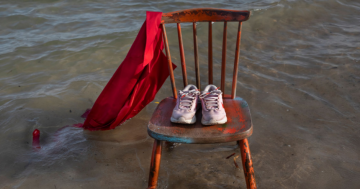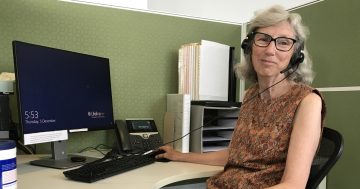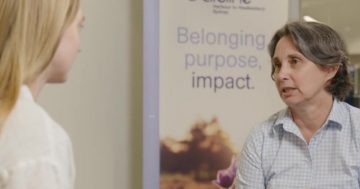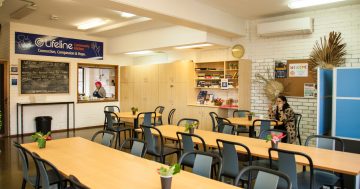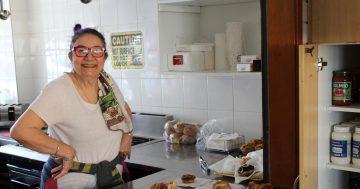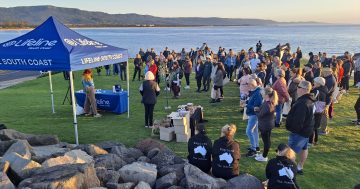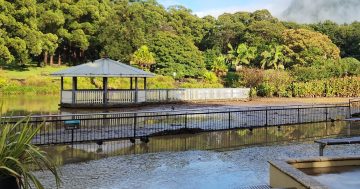
Lifeline South Coast volunteers undergo about a year of robust training before they become accredited. Photo: Lifeline South Coast.
Being a volunteer Lifeline South Coast crisis support worker might seem a departure for Nina Rassaby-Lewis after a long-standing career in fashion. But her experience is not unique.
In fact in the many months since attending a Lifeline South Coast information night, she has discovered the vast majority of those on the phones helping callers through some of their darkest times have not come from backgrounds in mental health.
“I think most people come in with at least some measure of uncertainty as to whether they have the tools and resources to do this kind of work, but you soon come to realise you don’t need anything other than the ability to access the listening skills I think we all have, and a desire to help,” she says.
Starting a psychotherapy degree led Nina to the volunteering role, but it’s not ultimately why she took on the position.
“A peer one day dropped it in loosely into a conversation,” she says. “When we asked her how she managed something so difficult, she said there was this amazing framework in place and that the training and support was incredible. I was intrigued.”
Over the ensuing year, Nina found her workmate’s account to be true.
Lifeline South Coast crisis support workers undergo about a year of robust training before becoming accredited, including classroom-based work, a placement phase and internship phase.
Nina says while a lot of in-depth information and referrals are covered off in this time, the framework offers something a lot more profound and enriching.
“All the hard information and referrals are easily accessible – they’re just one piece of the puzzle. The biggest resource you need is the ability to connect with other humans at that essential level where there’s a shared humanity and understanding that life is a struggle,” she says.
“There can be no judgement, just the understanding that what they’re going through is very real for them. You’re there in that moment – probably in a moment of greater suffering – to access that humanity in yourself that everyone has.”
The training involves a complete breakdown and rebuild of understanding communication and the methods involved.
“A lot of people who run high on empathy think they’re good listeners. I know I did. Then I did the training and realised 95 per cent of my ‘listening’ was drawing on my own experiences and trying to solve their problems,” Nina says.
“You start noticing the people in your life who are good listeners and realise what it is – they just drop in beside you, rather than battering you with input.
“It’s helped me hear hard things in my own life without having to say anything immediately and realise that’s enormously valuable for the person speaking.”
Nina, a full-time working mum, works the Lifeline South Coast phones about four hours a fortnight with a stretch goal of weekly when her busy schedule allows.
This flexibility has played a big factor in her ability to make the meaningful commitment Lifeline seeks from its volunteers.
“Sometimes I do have to cancel, but I can always pick up a shift easily because the phones are typically open from 6 am to 10 pm,” Nina says.
“Yes, a lot of resources go into training crisis support workers, so it’s definitely not something anyone should take on at a time of uncertainty that they can commit. But there’s also a deep understanding that we’re giving of ourselves outside of the other requirements of our lives, so when we do have to cancel there’s no guilt.
“If you want to learn more, an information night is a good starting point.”
Information nights break down what it means to be a crisis supporter. Attendees come away with a comprehensive understanding of the training path and requirements, and hear inspiring first-hand stories from experienced crisis support workers.
The next Lifeline South Coast information night takes place on Wednesday 13 November – visit Lifeline South Coast for more information.








